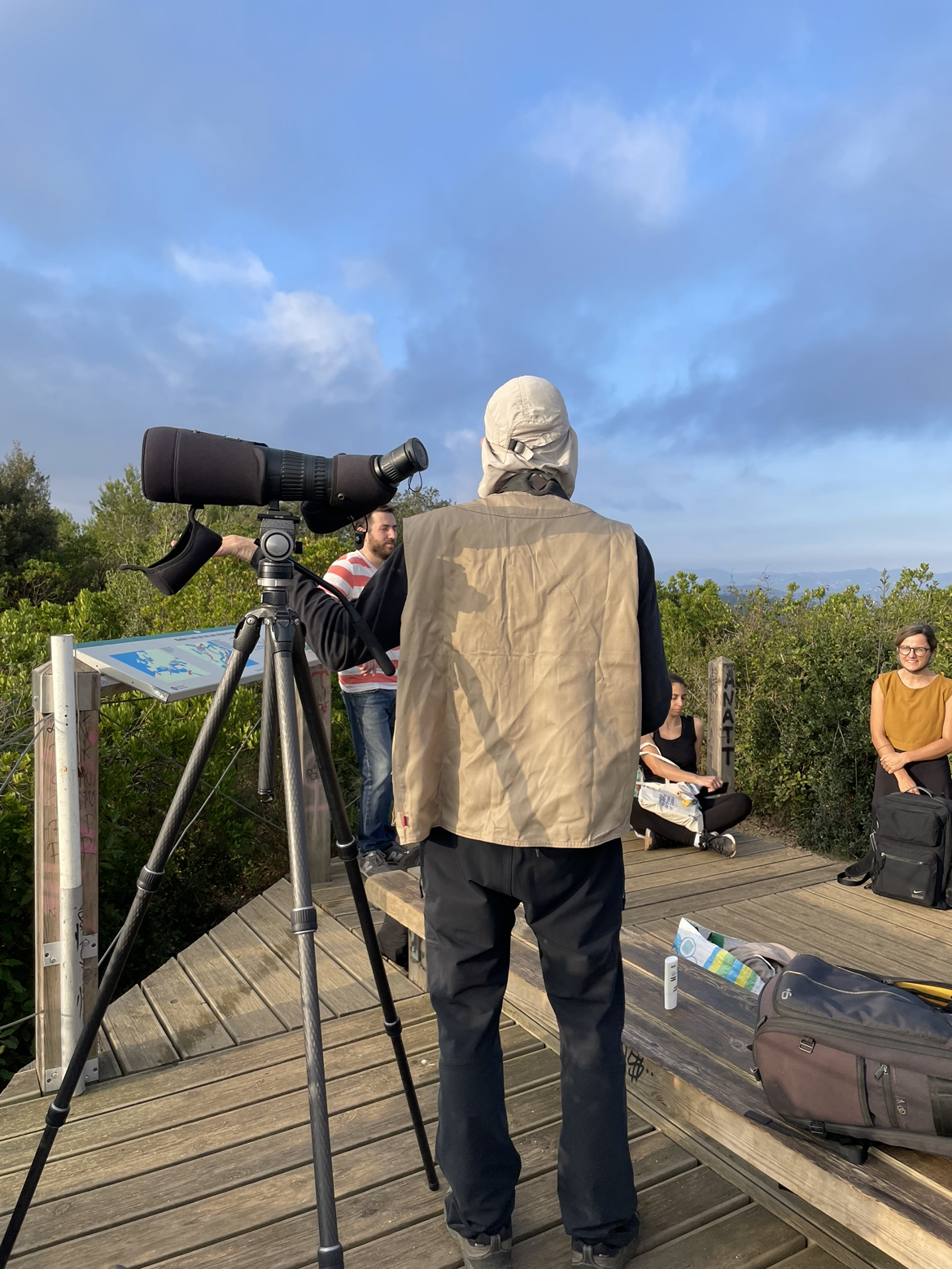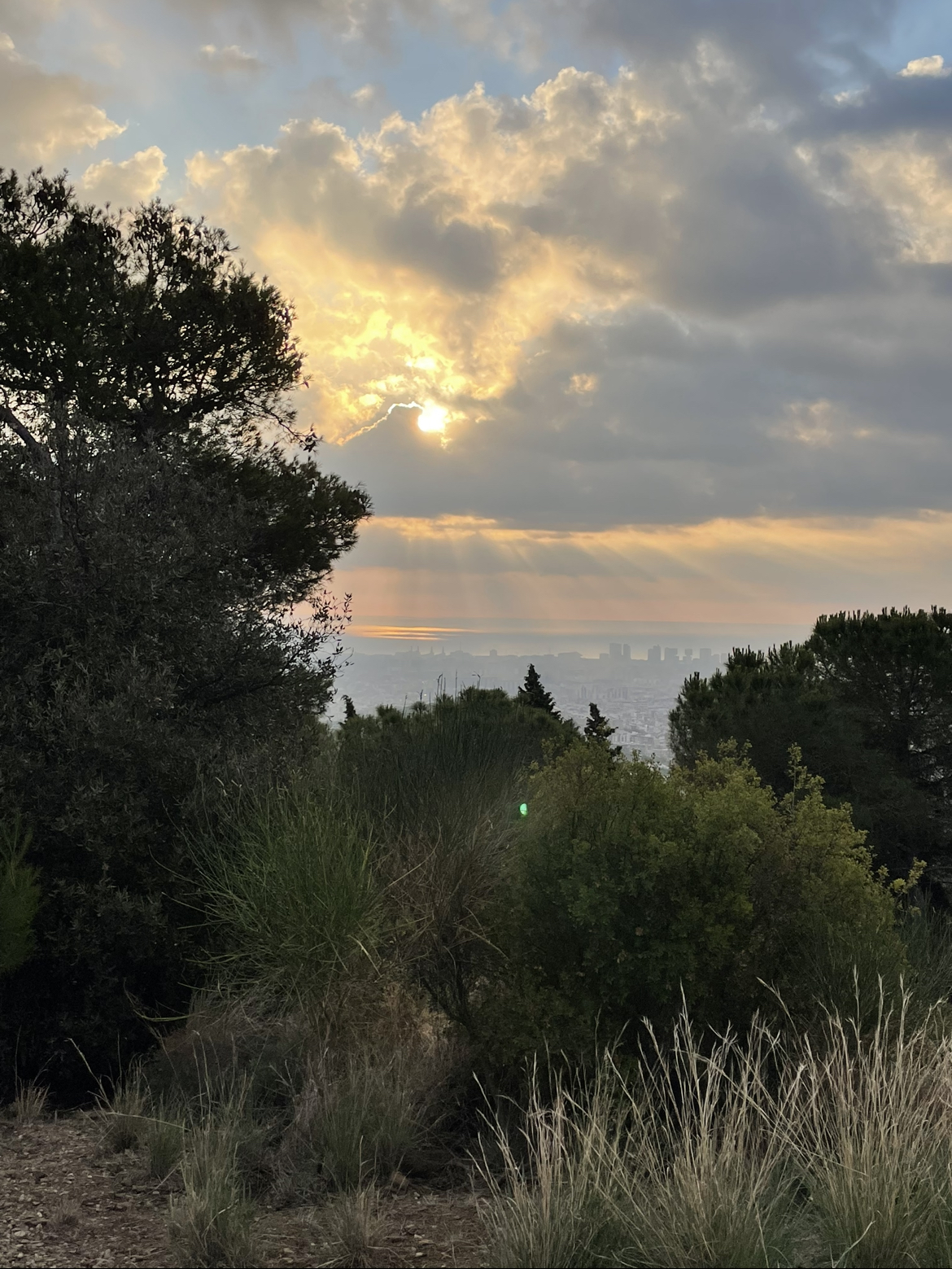
2. Atlas of Weak Signals.
This second week we had the Atlas of Weak Signals course, which analyzes emerging issues that can be assessed and in which way they can be approached. This included a trip to Collserolla.
Read MoreMarch 09, 2022
In this seminar we've been analyzing the emerging trends that we so naturally follow. It is a challenge to stop and break them down into what they actually are and put a critical perspective on them. As we move forward in society our behavior changes and we start adapting towards this new set of rules and common associations. We are living through a digital revolution and most of us have no problem adapting to it easily. We tend to look at the benefits we're getting from it but it's hard to crticially think about all the implications of the technology we are consuming.
We live in an attention economy, an economy based on the manipulation of users through a validation system. Web 2.0 gave us the ability to share our data with a lot of people globally and with this a lot of visibility. This developed a sense of need for validation in us. In order to feel visible or relevant in this society we need to be seen, and the more the merrier. Big companies controlling the web have taken advantage of this and use it to engage with us. Social media implements these strategies in order to keep us hooked, things as the infinite scroll, notifications, likes, systems of rewards and scarcity. In this sense we become their product and our data our value which is then to be sold to other companies.
This data is what makes us a valuable asset. Most of the automated products we consume and use on a daily basis are constantly recollecting data from us and sending it to their creators. A clear example are roombas, tracing our homes and getting information such as our floor plan, square meters, where we live, how many times we use it, etc. Foursquare is another example, we use it as a social media in order to engage with friends and see what they are up to, what places they recommend, what they ate, etc. But the app is more interested in gathering data such as economic level of users, frequented places, age, gender, etc. In some cases I agree that it's a fair exchange for a software given to us for free. Apps are usually "free" but obviously there is a price to pay which in this case is with our valuable data. In my case I move around a lot with google maps, and I actually enjoy saving recommendations and seeing what places there are around me. I am able to check their pictures and decide if I want their dishes or not or if the price is suitable for me. Maybe we are not all 100% aware of what we're giving when we use these apps but I believe there's always a catch and nothing is actually "free". So it's always good to keep that in mind.
When designing products that are programmed or automated we need to think about the reach and purpose. Why are we taking this decision? Who am I reaching with this? What do I want to obtain? Which path was followed and why? Why did I decide on this criteria? These questions help you deal with the accountability of the things that are put out there for others to consume.
Web 3.0 is the third stage of evolution of what we call the Internet. It is a decentralized network which in a sense is going back to what used to be Web 1.0 but heading towards a different future. In this web there is no need for permission from a central authority and people have more creative freedom. Introducing blockchain, people are now accountable and owners of their own work in the Web, making them able to profit from it. People now become owners and not only consumers. And... enter the NFT's.
Non Fungible Tokens are digital assets that are linked to blockchain and move with cryptocurrencies. This tokens which are delivered as a form of "art" or visuals are meant to create a value in them. They are unique because they are encrypted and there is a unique owner. Here comes the creation of scarcity which is another manipulation strategy for masses. By creating scarcity you create desirability. Everyone wants what only few can have. Which is not what was initially visualized by the developers of the new Web 3.0. NFT's are creating customizable ownership and making profit out of it. Some of this assets are just valuable because of their desirability and amount of people interested in them. Which I think is always relative, because who decides what is valuable and what is not? Also who gives value to it and how much. As it is based on a certain cryptocurrency this can always fluctuate and with it your NFT's value. But what if the NFT has another added value such as an entrance to a venue or event, membership, etc. Then even after the currency has lost value the NFT is still sustained by another value. There are many things surrounding this subjects and most of this concepts are relatively new to the mainstream public. Things can still change an adapt to become better. The good thing about Web 3.0 is that we actually have the capability of changing it ourselves.
How can we actually define labour? Most of us defined it as an exchange of activities and/or valuable assets. Money in exchange of knowledge and/or time. This will at the same time be exchanged to produce some other value which will become the final product to sell. Labour is part of our economy, it creates capital that will generate more money. Money that this capitalist era lives of. With the introduction of automation this labour is taking a shift. People are worried that these automated machines will come to substitute human jobs. We can refer back to when the industrial revolution came and people had the same thoughts. Instead of adapting to new available job opportunities and learning new skills that were needed to control them, some felt defeated. Which introduced the "useless class". They had no valuable skills that could outcome the ones that robots had. But there is the counter part of this which is called "the ludicite fallacy" in which the introduction of new tech creates new jobs. This would demand people to learn new skills and offer new goods and services. Allowing humanity to keep moving forward as it always has.

This second week we had the Atlas of Weak Signals course, which analyzes emerging issues that can be assessed and in which way they can be approached. This included a trip to Collserolla.
Read More
Week 3 was the introduction to biology. We learnt about microorganisms all around us and the composition behind them from cells to systems.
Read More
During this first week we got to know each other and the master's program. We learned about our own personal present skills and the future ones we want to obtain as well as our classmate's ones.
Read More